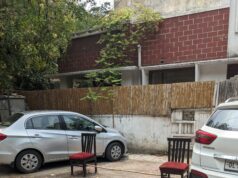One of the suggestions I have been talking about to speed up the courts is to create a separate track of courts that charge fees to file a case high enough to cover the full cost of running the court. These self-financing courts (SFCs), adapting the phrase from the more commonly known self-financing colleges, would be similar in all other manners to the existing courts. Their judges would be appointed in the same manner, they would follow the same laws and procedures, and so on. The only difference is the fee one has to pay to admit the case in the SFC.
The SFC approach would bring more investment in Indian judiciary and as the rich begin to go to the SFCs, the case load in regular courts would be reduced and that would mean speedier justice for the rest of the people.
I again presented this idea today at the Bharat Ram Memorial Seminar on Economics, Lawlessness, and Justice in India with Professor Avinash Dixit. Some thought that the rich would be able to buy justice in the self-financing courts. Obviously that is true as much as it is true today! The rich would have no extra advantage in SFCs in influencing the outcome than they have today in the regular courts. So some of the first objections were easy to deal with.
The larger objection was that the two-track courts violate the basic sense of equity and fairness. Even though the outcome of the cases could be the same under both types of courts, some people would be able to buy speedier justice. And the society should not or would not tolerate such discrimination on the basis of money in the access to something as basic as justice.
Now one can make quite a few pragmatic arguments that under the current system everyone is worse off, the SFCs courts would at least provide a way, however small, to begin to improve the situation. None of these of course directly address the issue of equity or fairness. Is there any argument that does?
Post Disclaimer
The opinions expressed in this essay are those of the authors. They do not purport to reflect the opinions or views of CCS.





